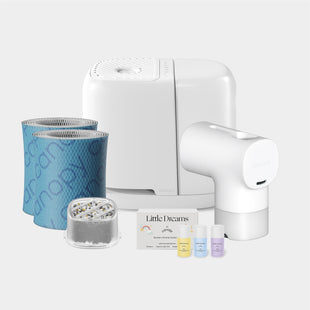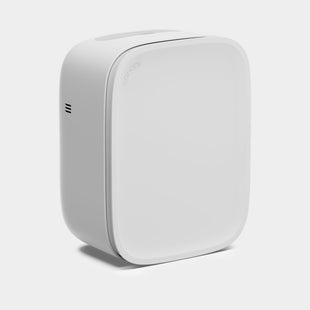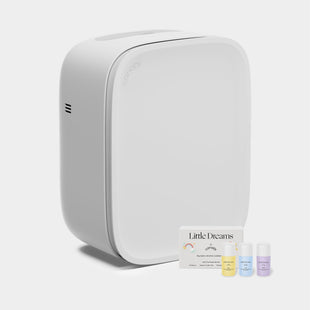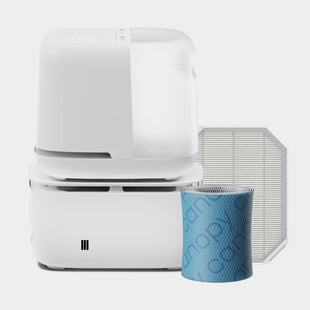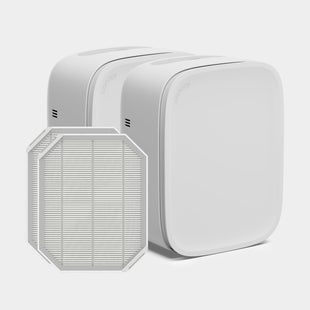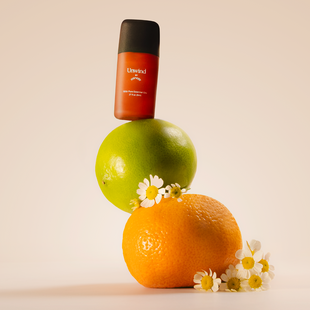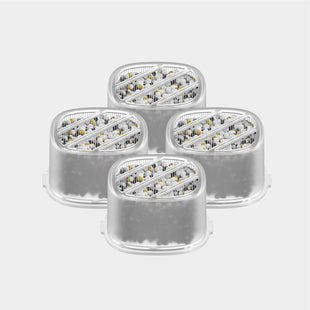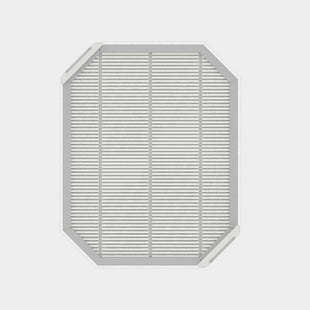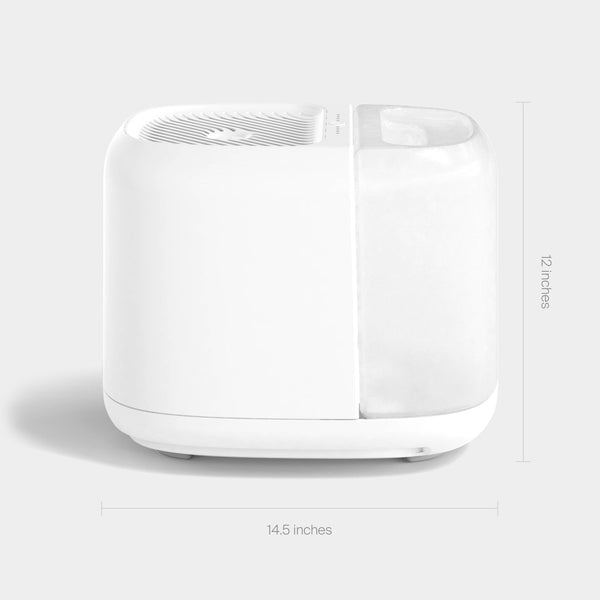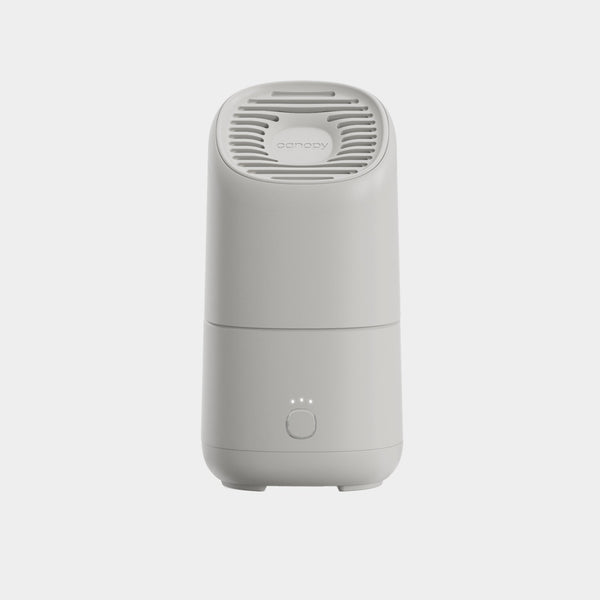This content has been reviewed and updated on August 14, 2024.
For many college students, living in a dorm room or campus apartment is a typical experience. It offers an opportunity to meet new people and build lasting relationships. However, living in close quarters isn’t always the most comfortable arrangement. But you’re in luck: Adding a dorm room or apartment humidifier can alleviate many of the issues that come with living in a small communal space.
Air Quality in Student Housing
Living near others can lead to allergy-induced discomforts, such as sneezing fits and sinus headaches. Even though they are invisible to the naked eye, dust mites can be found in carpeting and mattresses in dorm rooms and campus apartments. Inhaling dust that contains these tiny pests can trigger the immune system to release antibodies, resulting in itching, sneezing, and facial pressure, among other symptoms.
To add to the problem, these arthropods flourish in stagnant environments—and older dorms and apartments may lack air conditioning and efficient air circulation.
Apart from dust mites, pollen can also impact air quality and comfort levels. The powdery substances can enter your home through open windows and move through the ventilation system. People with pollen allergies may experience sinus issues and a stuffy nose, along with other symptoms.
Poor air quality can be caused by a shared ventilation system, as allergens from other units can travel through the ducts and vents to other parts of the building. Pet dander can also enter your space through the ventilation system, in addition to other substances. Even if pets aren’t allowed on campus, dander can cling to clothing after a trip back home.
Using a steam radiator for heat during the fall and winter semesters can be the source of dry air in your dwelling. Dry air absorbs moisture from your body, which can cause itchy skin, sore throat, nosebleeds, and nasal congestion. When mucous membranes dry out, viruses and other pathogens can enter the body and cause infections. If it seems like everyone in your hall gets sick at the same time, this is why.
Common Comfort Concerns in Campus Accommodations
Unwelcome Smells
Living in a dorm room or campus apartment may expose you to different scents. The aroma of cooking food, cigarette smoke, perfumes, and other residents' pets may permeate common areas and infiltrate your living space through windows and ventilation. Additionally, your roommates may also add to the smells. You may experience nausea, headaches, or other issues if you are sensitive to specific odors.
Distracting Sounds
Living on campus or in a student apartment often means living with noise, like talking, music, video game noises, and even a snoring roommate. These ambient noises can interfere with your ability to sleep and study.
How a Humidifier Can Help
Make Air More Breathable

If you're experiencing air quality problems in your dorm room or apartment, a humidifier can be helpful. This device releases moisture into the air, providing various health benefits. It can help alleviate dryness caused by a decrease in relative humidity due to steam radiators. The added humidity can keep your mucous membranes moist, which helps protect against viruses and pathogens.
During winter, using a warm mist humidifier can raise the temperature in a room. However, it's important to note that this type of humidifier can potentially increase humidity levels excessively.
If you are experiencing nasal congestion, using a cool mist humidifier can help relieve the symptoms. This type of humidifier releases room-temperature moisture that can help to thin the mucus in your sinus passages, making it easier to breathe and alleviate congestion. To prevent nasal congestion and a sore throat, keep the humidity level between 30% and 50%.
A humidifier for a dorm room or campus apartment can also keep allergens out of the air. As moisture surrounds dust mites, pollen, and additional particles, it weighs them down so they fall to the ground.
Create a More Soothing Environment
Did you know that a humidifier can also help cancel out background noises? It produces a gentle hum comparable to a spinning fan's sound. This type of sound is called white noise, comprising all audible sound frequencies at an equal level. The steady sound can help you fall asleep. White noise in the background can help the auditory cortex focus on other sounds. Redirecting your attention with gentle sound can aid concentration and memory.
A humidifier with an aromatherapy diffuser helps combat odors in a room. You can add essential oils to the device so the aroma circulates with the humidified air, creating a pleasant scent throughout the area. Not only can this help to mask any unpleasant smells, but certain oils—like peppermint and eucalyptus—can also make a room feel more stimulating or relaxing, depending on your needs and chosen scent.
Are humidifiers allowed in dorms? Well, that depends on your school's policies. Research the guidelines before making a purchase.
If a humidifier is part of your back-to-school list, Canopy can make campus living feel more like home. Our Bedside Humidifier can provide moisture to areas up to 500 square feet, while the Humidifier Plus can cover up to 1,000 square feet—perfect for larger student apartments. The evaporative system and built-in sensors hydrate without making rooms feel damp or stuffy.
Take your comfort and hydration all over campus with the Portable Humidifier. This compact device lasts up to 11 hours on a single battery charge and has the same easy cleaning and mold-inhibiting* design inside the humidifier as our full-size humidifiers.
Both come equipped with a wood pulp filter that traps bacteria and other contaminants, and our filter bundles and subscriptions ensure you’ll always have a clean replacement. Pair your favorite Canopy aroma kits with your humidifier for an even more enjoyable experience.
*Mold inhibition limited to device interior. Does not treat air or environment. 3rd party lab-tested with Aspergillus niger (ATCC 6275, 16404).









